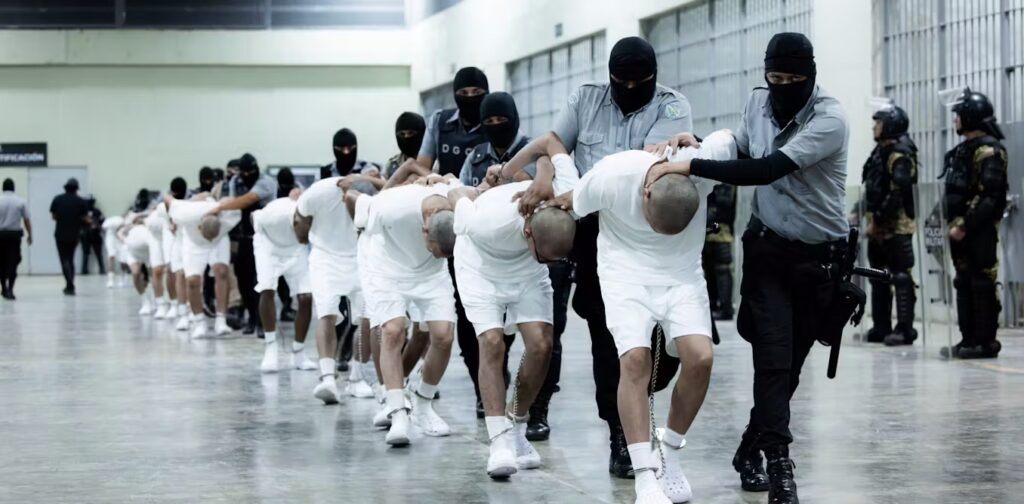Legal Ruling Highlights Need for Fair Legal Processes in Deportation Cases
A federal judge has mandated that the initial group of Venezuelan migrants deported to El Salvador under an infrequently used wartime statute must be granted the chance to challenge their removal, even if they are no longer within U.S. jurisdiction. This decision underscores the importance of safeguarding legal rights during immigration enforcement, especially in sensitive cases involving national security laws.
Judicial Intervention in Deportation Procedures
Chief Judge James E. Boasberg of the U.S. District Court emphasized that the 137 individuals, accused by the government of belonging to the violent Tren de Aragua gang, were deprived of their fundamental right to contest their deportation before being sent to a notorious Salvadoran detention facility. The judge pointed out that these migrants were forcibly removed under the Alien Enemies Act in March without proper legal safeguards. As a result, he has given the Department of Justice until June 11 to propose methods that would allow these detainees, who remain in El Salvador, to access legal recourse.
While acknowledging concerns related to national security and diplomatic relations, Judge Boasberg clarified that he is not yet ordering specific actions but is instead requesting the government to submit plans for providing fair legal opportunities. This approach aims to prevent the government from bypassing judicial review by simply removing individuals without due process, a practice that has raised significant legal and ethical questions.
Controversies Surrounding the Use of Wartime Laws in Immigration Enforcement
The Trump administration’s utilization of the Alien Enemies Act to expedite the deportation of suspected gang members has faced widespread criticism from judicial authorities nationwide. Several federal courts in Texas, New York, California, Colorado, and Pennsylvania have temporarily halted deportations under this law, citing insufficient notice-only 24 hours-given to detainees, which critics argue does not provide adequate time for legal challenges.
The Supreme Court has recognized the necessity of affording detainees sufficient opportunity to seek judicial relief but has yet to rule definitively on the legality of the government’s broad application of the law to deport foreign nationals accused of gang affiliation. This ongoing legal debate highlights the tension between national security measures and constitutional protections.
Deportation Flights and Legal Oversights
The migrants at the center of Judge Boasberg’s ruling were among those deported on the first flights to El Salvador’s notorious Terrorism Confinement Center (CECOT) on March 15. Despite a court order to halt these flights, they proceeded, raising questions about compliance with judicial directives. The judge has since initiated contempt proceedings to determine whether officials deliberately disobeyed the court’s order.
Boasberg’s recent ruling states that the government’s actions “plainly deprived” these individuals of their right to challenge their removals. Furthermore, new evidence suggests that many of these migrants may not have ties to the alleged gang, raising concerns about the validity of their detention and deportation. The judge has ordered the administration to rectify these procedural deficiencies and ensure that the migrants’ rights are protected as if proper legal procedures had been followed initially.
Challenges in Providing Due Process Abroad
While the court recognizes the importance of affording legal hearings, it also acknowledges the logistical difficulties involved in providing such protections to individuals detained in foreign prisons. The government claims that, under the terms of the agreement with El Salvador, these deportees cannot be returned to the U.S. for legal proceedings and are no longer under U.S. custody. However, Judge Boasberg expressed skepticism about these assertions, citing concerns over the government’s conduct and transparency throughout the case.
Reactions and Future Implications
The Department of Justice has yet to comment on the ruling, which remains subject to appeal. Meanwhile, advocacy groups such as the American Civil Liberties Union (ACLU) have praised the decision. Lee Gelernt, the lead attorney representing the deported migrants, stated, “This ruling rightly demands that the government address its clear constitutional violations and prevent individuals from being left in inhumane conditions abroad, potentially for life.”
This case exemplifies the ongoing legal and ethical debates surrounding the use of wartime laws in immigration enforcement, emphasizing the need for transparent procedures that respect individual rights while balancing national security concerns. As the legal process unfolds, it remains to be seen how authorities will implement these directives and whether broader reforms will be necessary to prevent similar violations in the future.

